A Leader’s Transformation: Thumama’s Path from Hostility to Devotion
Thumama, a leader of the Banu Hanifa tribe, had long harbored hostility toward Islam and its followers. His hatred was so intense that he actively sought to harm the Muslims, particularly after receiving an invitation from the Prophet Muhammad (peace be upon him) to embrace Islam. He rejected the message with disdain, further intensifying his enmity.
The turning point in Thumama’s life occurred during the Prophet’s first military campaign following the Battle of the Trench and the campaign against the Banu Qurayza. The Prophet (PBUH) sent Muhammad ibn Maslamah (may Allah be pleased with him) on a mission with thirty men to raid the Najdi tribes of Banu Bakr ibn Kilab, who resided at Al-Qarṭāʾ, seven nights' journey from Medina. The raid took place on the 10th of Muharram in the sixth year of Hijra. They traveled by night and hid during the day until they launched a surprise attack, killing ten of their enemies and capturing their livestock.
On their way back, the Muslim expedition captured Thumama ibn Uthal, unaware of his identity as the chief of Banu Hanifa. They brought him back to Medina and tied him to a pillar in the Prophet’s mosque. The Prophet Muhammad (PBUH) recognized Thumama upon seeing him and treated him with kindness and respect, despite his previous animosity toward Islam.
This incident is recorded in a hadith narrated by Abu Hurairah (may Allah be pleased with him). He said: “The Prophet (PBUH) sent a cavalry to Najd, and they captured a man from the tribe of Banu Hanifa, whose name was Thumama ibn Uthal. They tied him to one of the pillars of the mosque. The Prophet (PBUH) went to him and said, ‘What do you have to say, Thumama?’ He replied, ‘I have something good, O Muhammad! If you kill me, you will kill one whose blood will be avenged. If you show me kindness, you will be showing kindness to one who is grateful. And if you want money, ask and you will be given whatever you wish.’ The Prophet left him alone until the next day. Then, the Prophet (PBUH) came to him again and asked, ‘What do you have to say, Thumama?’ He replied, ‘What I have already told you: if you show kindness, you will be showing kindness to one who is grateful.’ The Prophet left him until the following day. He came to him a third time and asked, ‘What do you have to say, Thumama?’ He said, ‘I have what I told you before.’ The Prophet then said, ‘Release him.’”
Thumama was freed and immediately left the mosque. He proceeded to a nearby palm grove, performed ghusl (a ritual purification), and returned to the mosque. There, standing before the Prophet (PBUH) and his companions, he declared, “I bear witness that there is no god but Allah, and I bear witness that Muhammad is the Messenger of Allah.” With this testimony, Thumama embraced Islam wholeheartedly.
His conversion was genuine, as evidenced by his words following his declaration of faith. He said, “O Muhammad, by Allah, there was no face on earth more hated by me than yours, but now your face is the dearest of all faces to me. By Allah, there was no religion more hateful to me than yours, but now your religion is the dearest of all to me. By Allah, there was no city more detestable to me than your city, but now your city is the most beloved to me.”
Thumama’s story did not end with his conversion. He expressed his desire to perform ‘Umrah, a pilgrimage to Mecca, and asked the Prophet for guidance. The Prophet (PBUH) encouraged him to go, and Thumama set off for Mecca as a newly converted Muslim. When he arrived in Mecca, some Quraysh leaders questioned him, accusing him of abandoning his former faith. They said, “Have you become a Sabian (meaning a follower of the new religion)?” Thumama boldly replied, “No, but I have embraced Islam with Muhammad, the Messenger of Allah.” He then made a bold proclamation, saying, “By Allah, no grain of wheat will come to you from Yamama until the Prophet (PBUH) gives permission.”
True to his word, upon returning to Yamama, Thumama used his influence to impose a blockade on the Quraysh, cutting off their access to essential supplies, including grain. The people of Mecca soon found themselves in a dire situation, unable to obtain food. Desperate, they pleaded with the Prophet Muhammad (PBUH) to intervene. The Prophet, embodying mercy even towards his enemies, wrote to Thumama, asking him to lift the blockade. Out of loyalty and obedience, Thumama complied immediately, showcasing the strength of his faith and his commitment to the Muslim community.
Thumama's story is a powerful testament to the profound impact of the Prophet’s mercy. Despite Thumama’s previous enmity and hostility, the Prophet (PBUH) treated him with kindness and allowed him the time and space to come to Islam on his own terms. This compassion ultimately led to one of the most remarkable conversions in Islamic history.
Thumama’s subsequent life as a Muslim was marked by unwavering dedication to Islam. He played a critical role in opposing the false prophet Musaylima, who attempted to deceive the people of Banu Hanifa. Thumama stood firm in his faith, rejecting Musaylima’s lies and defending the truth of Islam. His leadership, eloquence, and conviction in the face of such challenges further solidified his place in Islamic history as a model of faith and resilience.
His story is a reminder of the transformative power of Islam, the boundless mercy of the Prophet Muhammad (PBUH), and the strength that comes from true faith.
Disclaimer
The views expressed in this article are the author’s own and do not necessarily mirror Islamonweb’s editorial stance.

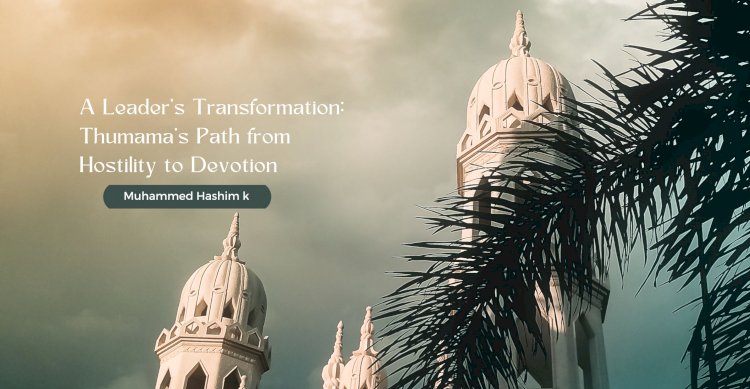



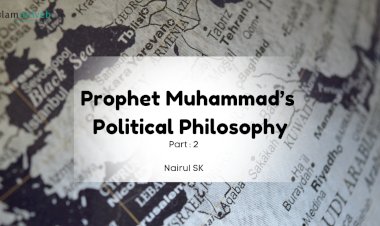
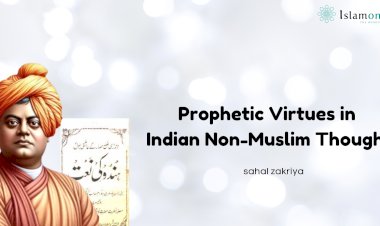
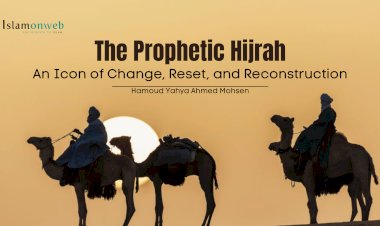
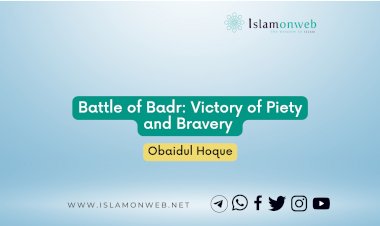
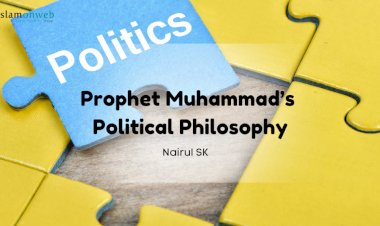
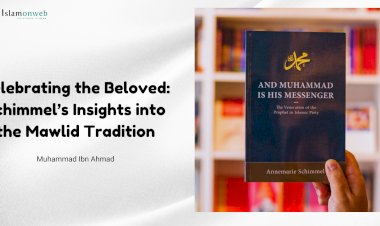














Leave A Comment